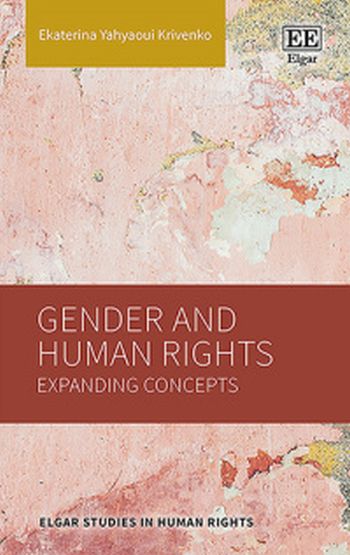We will be closed from 5pm Thursday 17th April for the Easter Bank Holidays, re-opening at 8.30am on Tuesday 22nd April. Any orders placed during this period will be processed when we re-open.

This unique book analyses the impact of international human rights on the concept of gender, demonstrating that gender emerged in the medical study of sexuality and has a complex and broad meaning beyond the sex and gender binaries often assumed by human rights law.
Ekaterina Yahyaoui Krivenko skilfully illustrates the dynamics within the field of human rights which hinder the expansion of the concept of gender and which strategies and mechanisms allow and facilitate such an expansion. Gender and Human Rights surveys the development of human rights from the creation of the United Nations up to the present day and discusses key examples of the prohibition of violence and the regulation of culture and family in the context of human rights. This multidisciplinary study also incorporates additional perspectives from medical science, feminism and queer theory.
This concise yet engaging book will be a valuable resource for scholars, students and activists working at the intersection of gender law and human rights law, providing a critical overview of the topic alongside strategies for future growth.